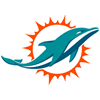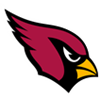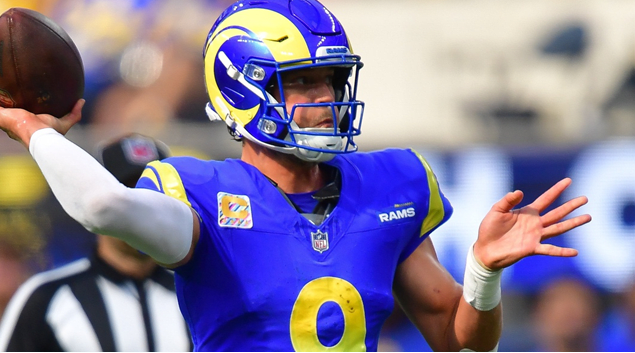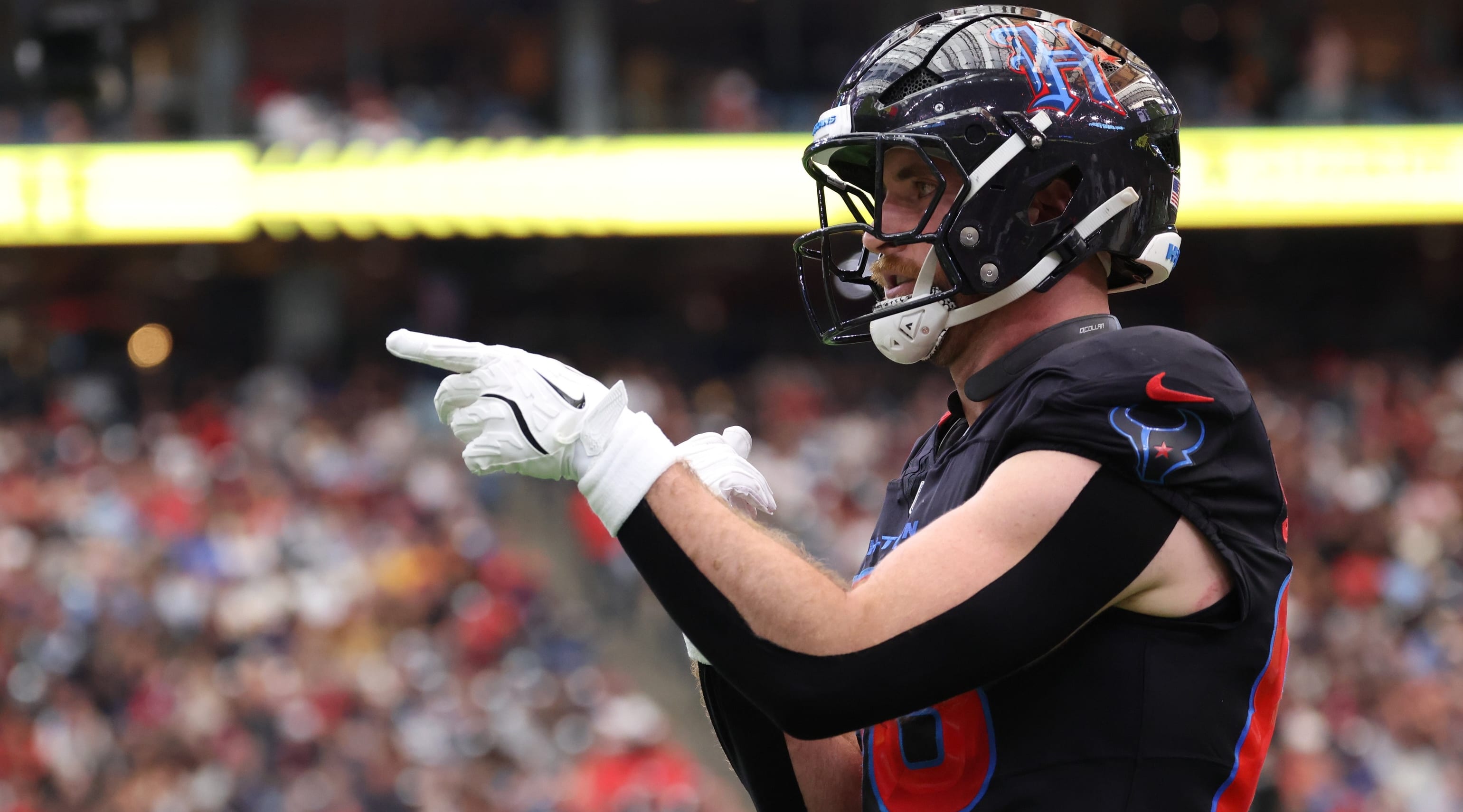NFL rosters for 2024 are largely set, with the biggest remaining questions for most teams pertaining to competitions for the final dozen or so spots on the Week 1 53-man roster. A vast majority of transactions between now and Week 1 will involve practice-squad-caliber players that are irrelevant fantasy football, but it's helpful for draft planning if we have an idea about what some of the exceptions might be.
There are a few late-round fantasy picks that could end up being cap casualties later this summer, and then some star players that might still be traded for one reason or another. While teams usually figure out cap casualties early in the offseason, there are also isolated instances when they want to see how things shake out during training camp and the preseason before deciding if a player with a non-guaranteed salary is worth paying. I'll discuss some of those in-danger players below, but first let's look at some bigger names and the various arguments for trading them.
Trade Candidates
The Raiders are anything but all-in for this season, sitting on $34 million in cap space while allowing Gardner Minshew and Aidan O'Connell to battle at QB. I'd understand keeping a highly-paid, 31-year-old WR on a rebuilding team to help a potential franchise quarterback develop; it makes a lot less sense when no such QB exists on the roster (O'Connell was decent as a rookie, but he turns 26 in September and is one of the least mobile signal-callers in the league).
While I'm not saying the Raiders will trade Adams, they definitely should, even if the return isn't all that great. There are worse things than having Jakobi Meyers, Michael Gallup and Tre Tucker as your top three WRs in a two-TE-heavy offense during a rebuilding year... especially when getting rid of Adams' $16.89 million guaranteed salary would allow the Raiders to carry over around $50 million in cap space to future seasons.
New England, Washington, Detroit and Arizona are the teams with similar cap space and flexibility for 2024, but a number of others could fit Adams' contract if they restructured a couple contracts or simply were willing to operate tight to the cap. My favorite idea is an Adams for Tee Higgins swap, allowing the Raiders to get younger while the Bengals maintain their current Super Bowl chances without sacrificing post-2024 cap flexibility (Adams has no guaranteed money after this season).
My second-favorite idea would send Adams to Detroit, where he isn't necessarily needed from a schematic/structural perspective but could easily be fit under the cap for a team that curiously has around $40 million in space. The new contracts for Jared Goff, Amon-Ra St. Brown and Penei Sewell minimize their cap hits for 2024 and 2025, but the Lions haven't fully taken advantage with aggressive moves despite being in an obvious win-now window with the flexibility to do so.
Maybe that's coming next offseason, or maybe they'll keep rolling over cap space for when things could start to get hairy in 2026. Anyway, this is probably more about the real-life money than the cap stuff, though nobody in football media will ever talk about that (lest we imply that owners care about cash flows as much or more than winning). Goff's $73 million signing bonus puts the Lions near the top of the league in 2024 cash spending, which of course means Martha Ford will be clipping coupons this summer instead of visiting Martha's Vineyard (no relation).
 WRs Brandon Aiyuk & Deebo Samuel
WRs Brandon Aiyuk & Deebo Samuel
As much as I hate the idea of a team in an obvious Super Bowl window trading a right-now standout like Aiyuk or Samuel for future draft capital, there's nothing wrong with flipping a wide receiver for a high-quality starter at another position. At the very least, San Francisco should survey the league to see whether that's an option for Aiyuk if they don't bridge the gap on his extension negotiations within the next few weeks.
From The Insiders on @NFLNetwork: #49ers WR Brandon Aiyuk says the team doesn't want him. Which... they do. Just not (yet) at his price. pic.twitter.com/TwryFalIQS
— Ian Rapoport (@RapSheet) June 17, 2024
The 49ers don't have any glaring weaknesses, but they could use help at cornerback and don't have any standouts on the offensive line besides LT Trent Williams. Without putting too much thought into this... maybe they could offer Samuel for Ravens CB Marlon Humphrey and a late-round pick, or Aiyuk for Steelers RG James Daniels and a third-rounder.
That said, there's probably no way for the 49ers to become better for 2024 after trading one of their star receivers, especially Aiyuk. Teammate Deebo Samuel is more fun to watch and one of my all-time favorites, but Aiyuk is probably more important to the San Francisco offense because he excels at separating on deep and intermediate routes (and gets injured less often). I also think first-round pick Ricky Pearsall and fourth-rounder Jacob Cowing both are more likely to replace Samuel's functions than Aiyuk's.
"It's disheartening -- and then it starts to make you angry."
Brandon Aiyuk's WR coach and former NFL receiver T.J. Houshmandzadeh told @957thegame the 49ers star is "pessimistic" about an extension https://t.co/CexyZNe5fL
— 49ers on NBCS (@NBCS49ers) June 7, 2024
This one seems increasingly unlikely, with Sutton reporting to minicamp despite some lingering dissatisfaction with his contract. He's been mentioned in trade rumors since last offseason, in part due to questions about his fit in Sean Payton's YAC-dependent West Coast offense (for which Russell Wilson was also an odd fit). Sutton scored 10 touchdowns last year, but his other numbers were far less impressive, including 90 targets on 447 routes (20.1 percent target rate).
The Broncos might be willing to take their chances with Josh Reynolds, Marvin Mims, Troy Franklin, etc., rather than keeping a discontented Sutton or giving him an extension/raise of questionable merit. He's due $13.6 million in 2024 and $14 million in 2025, which seems about right relative to his production, though Sutton perhaps views himself as a 1,000-yard receiver who has been held back by his QBs and coaches.
He might be right, but the Broncos aren't likely to fork over more money for a guy with two years remaining on his contract and production that's commensurate with the salaries. The most likely scenario right now is Sutton playing out 2024 on his current deal and then being subject to rumors/drama for a third straight offseason in spring 2025. The second-most-likely possibility is a Russell Wilson reunion in Pittsburgh, as the two veterans seem like better fits with each other than they were with Payton.
Calvin Ridley, among others, has praised Burks this spring, but the 2022 first-round pick probably won't enter Week 1 with a top-three role even if he shines this summer. I don't hate the idea of keeping him around as an unconventional No. 4 receiver, especially given that Ridley, DeAndre Hopkins and Tyler Boyd will all be 30 or older by the end of the season (and only Ridley is signed beyond 2024). On the other hand, the Titans have another capable backup wideout in Nick Westbrook-Ikhine, making Burks a pure luxury. Would they really say no if another team offered a fourth-round pick?
Mitchell is in a contract year and would be the best pure runner on at least a few NFL rosters (for however long he stayed healthy before suffering another knee injury). The 49ers will probably keep him while giving fourth-round pick Isaac Guerendo more time to develop, but they can afford to trade Mitchell if they get a decent offer, as third-stringer Jordan Mason is equally familiar with Kyle Shanahan's offense and has fared pretty well with his limited chances. A trade would especially make sense if Guerendo or undrafted rookie Cody Schrader steps up big this summer and looks ready for the No. 2 RB role.
49ers seem to have a very complementary mix of talent, options at RB behind CMC.
- I sense a bit of a Purdy dynamic with UDFA Cody Schrader — didn't test well but very experienced and productive in high-level CFB. That == instant polish
-Isaac Guerendo is a much less…
— David Lombardi (@LombardiHimself) June 6, 2024
The Panthers already paid Sanders a $2 million bonus this offseason and would need to eat most of his guaranteed $4.02 million salary to facilitate a trade. He was terrible last year, but a team in need of a backup ballcarrier (like the Giants?) might be willing to give up a sixth/seventh-round pick if they didn't have to pay Sanders much once they had him. He's 27 years old and had a 259-1,269-11 rushing line (4.9 YPC) for the Eagles in 2023, which inspired the Panthers to give him a four-year, $25.4 million contract. The only good news for Carolina is that there's no guaranteed money remaining after this season.
Carter wasn't clearly ahead of undrafted rookie Emari Demercado late last season, and the Cardinals have since added third-round pick Trey Benson and special teamer DeeJay Dallas to a backfield led by James Conner. With Conner, Dallas and Demercado all capable of handling passing downs, Carter appears unneeded in Arizona for the final year of his rookie contract. He'd fit better with a team like Indianapolis that doesn't have a proven passing-down back.
 WR Danny Gray
WR Danny Gray
Gray was a third-round pick in 2022, didn't play much as a rookie and then missed all of 2023 with a shoulder injury. He's healthy now, but the 49ers have three veteran starters at wide receiver and just spent a first-round pick on Pearsall and a fourth-rounder on Cowing. Trading Gray would make sense, even if it's only for a late-round pick swap or a conditional pick. That said, I'm not sure any other team would be interested, given that Gray is 25 years old and looked like a reach in the third round back when the Niners drafted him.
The Texans have impressive depth behind their Big 3 at wide receiver, also rosterting Robert Woods (see below), Noah Brown and Ben Skowronek. Metchie or Hutchinson wouldn't fetch more than a late-round pick and wouldn't be assured of a roster spot with a new team, but it might be enough to keep them semi-relevant in deep dynasty leagues a bit longer. Both turn 24 this summer.
From my recent RW player note:
Jordan is in a tough position for the final year of his rookie contract, as the Texans re-signed starting tight end Dalton Schultz in March and drafted Cade Stover in the fourth round. They also have two fullbacks on the offseason roster and one of the best WR groups in the league, making it tough for Jordan to get on the field regularly as a second tight end. The 2021 fifth-round pick did well with his limited chances last year, catching 17 of 21 targets for 219 yards and two touchdowns, but there's not really a path to role growth without Schultz suffering an injury.
'He's improved he's confident he believes he's a dude and he can be for us and he is' #Texans coach DeMeco Ryans on tight end Brevin Jordan whom he emphasized regularly makes highlight plays he shows to the team in meetings @Brevinjordan @Wasserman @SteveCaric @KPRC2 pic.twitter.com/4QYoyAbCfJ
— Aaron Wilson (@AaronWilson_NFL) June 5, 2024
Granson will never be much of an inline tight end or a three-down player, but he can provide a slight upgrade in obvious passing situations for a team that lacks a reliable move tight end (e.g. Broncos, Chargers, Giants). While the Colts also lack a sure thing at the position, they have a slew of viable candidates to replace Granson as the pass-catching specialist, including one guy (Jelani Woods) who might also be able to handle inline work.
 QB Davis Mills
QB Davis Mills
The Texans probably want more than anyone is willing to pay, considering they already kept both Mills and Case Keenum on the roster all of last season even after it became clear C.J. Stroud was the truth. Keenum started the two games Stroud missed — though he was benched for Mills in the second one — and now has $1 million of his $3 million in 2024 compensation guaranteed. Other options here would include cutting Keenum or keeping him around as an overpaid No. 3 QB
Potential Cap Casualties
 RB Alvin Kamara
RB Alvin Kamara
The Saints already paid Kamara a $1 million bonus in mid-March, suggesting they expected him to be a key part of the team this year. On the other hand, he's due another $10.7 million in non-guaranteed compensation, making him one of the league's highest-paid RBs even though it's not clear he's still one of the best. On top of that, Kamara isn't happy with the situation* and reportedly skipped the final practice of minicamp in protest.
Alvin Kamara skipped the Saints' final minicamp practice on Thursday because of what is believed to be contract-related reasons. He was seen leaving the facility in street clothes before the workout.
— Jeff Duncan (@JeffDuncan_) June 13, 2024
A release would free up $10.7 million in 2024 cap space, which the Saints could then roll over to 2025 to make up for Kamara's associated $10.1 million dead-cap charge next season. The dead-cap money is inevitable, FWIW. Kamara's backloaded contract with void years means the Saints will take a large cap hit for him the year after he leaves (in other words, it's a matter of 'when' not 'if').
I don't think Kamara has much trade value at his current salary, but it can't be completely ruled out, especially if he'd consider a pay cut or restructure for the right situation. The Saints could then test 2023 third-round pick Kendre Miller as their lead back, with 29-year-old Jamaal Williams being the insurance plan after a disappointing first season in New Orleans. Miller is gaining steam in best ball markets, rising by nearly a round a half between mid-May and mid-June.
*We don't know if he's looking for an extension or simply an agreement to convert non-guaranteed money into guarantees.
Perine is due $3 million (all non-guaranteed) in the second season of a two-year, $7.5 million contract. That seems about fair for a guy that can block, catch passes and play special teams, but he might not be worth it to the Broncos if they'd rather use a quicker RB like Jaleel McLaughlin or Blake Watson as their passing-down specialist. They recently added Watson (an undrafted free agent) and Audric Estime (a fifth-round pick) to a backfield that still has its top three guys from last season — Perine, McLaughlin and likely lead back Javonte Williams. A trade could also work here, though we're probably talking about a seventh-round pick given that Perine is a role player and fairly paid.
 WR Robert Woods
WR Robert Woods
The Texans have overpaid veteran backups and special teamers for years now, with GM Nick Caserio seemingly putting a huge emphasis on team culture and experience even before DeMeco Ryans came in as head coach. Most teams would've already released Woods or worked out a pay cut, as only $1.5 million of his $6.25 million salary is guaranteed and he's not even locked in for the No. 4 WR role. I still think a pay cut, trade or release is the most likely outcome, but if any team is willing to pay a 32-year-old No. 5 receiver like a No. 3 receiver, it's the Texans.
Note: Caserio can afford to make some mistakes after striking gold with Ryans and CJ Stroud, but the GM's strange way of operating may eventually have negative consequences. He uses a few million dollars of cap space here and there on the type of players that a team like Kansas City or Baltimore would simply release (or never sign in the first place) and replace with late-round picks. Maybe as the Texans enter their Super Bowl window Caserio will stop doing goofy stuff like giving millions in guarantees to a backup QB when he already has a good one, or spending a bunch of money on "wily veterans" who might be better as coaches than players at this stage of their careers. One can hope.
 QB Mike White
QB Mike White
The Dolphins can save $3.5 million in cap space if they move on from White before Week 1. In other words, Skylar Thompson will get another chance to win the backup QB job after losing a competition with White last summer.
 TE Mo Alie-Cox
TE Mo Alie-Cox
MAC's window for personal fantasy relevance is shut, but he's still borderline relevant in terms of taking snaps from another player we might otherwise care about. The Colts have six legitimate candidates for playing time at tight end, with Alie-Cox joined by Jelani Woods, Kylen Granson, Will Mallory, Drew Ogletree and Eric Tomlinson.
Clearing a few guys out from that logjam would help the odds of Woods or Mallory emerging from the pack and establishing a degree of fantasy value. Woods is the most interesting of the bunch, offering a size-speed combination the others can't match. Ogletree and Tomlinson are bigger, slower players that likely will be used mostly as blockers, if they have roles at all.






 WR
WR  WR
WR  WR
WR  RB
RB  RB
RB 



































